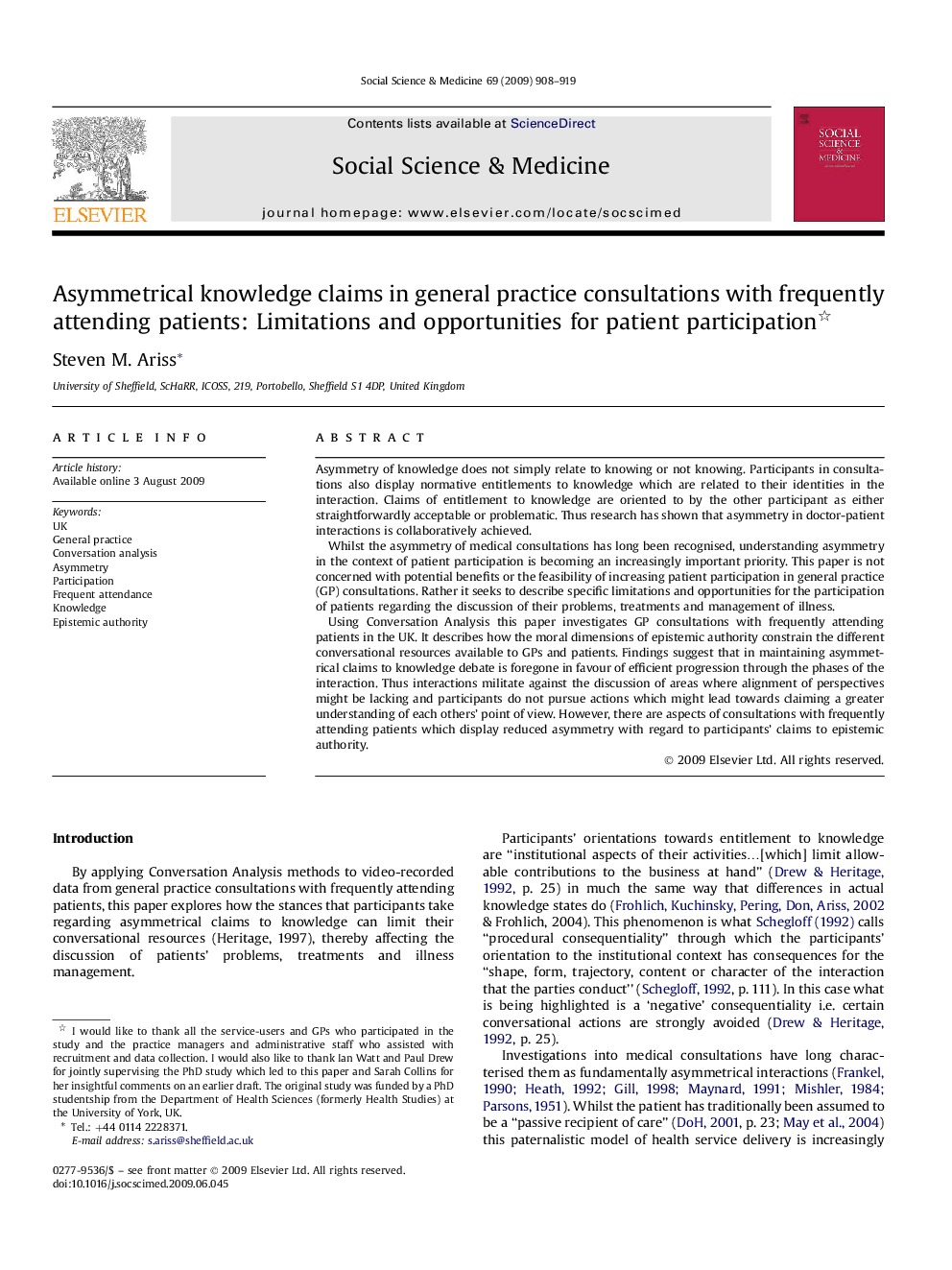| کد مقاله | کد نشریه | سال انتشار | مقاله انگلیسی | نسخه تمام متن |
|---|---|---|---|---|
| 953487 | 927588 | 2009 | 12 صفحه PDF | دانلود رایگان |

Asymmetry of knowledge does not simply relate to knowing or not knowing. Participants in consultations also display normative entitlements to knowledge which are related to their identities in the interaction. Claims of entitlement to knowledge are oriented to by the other participant as either straightforwardly acceptable or problematic. Thus research has shown that asymmetry in doctor-patient interactions is collaboratively achieved.Whilst the asymmetry of medical consultations has long been recognised, understanding asymmetry in the context of patient participation is becoming an increasingly important priority. This paper is not concerned with potential benefits or the feasibility of increasing patient participation in general practice (GP) consultations. Rather it seeks to describe specific limitations and opportunities for the participation of patients regarding the discussion of their problems, treatments and management of illness.Using Conversation Analysis this paper investigates GP consultations with frequently attending patients in the UK. It describes how the moral dimensions of epistemic authority constrain the different conversational resources available to GPs and patients. Findings suggest that in maintaining asymmetrical claims to knowledge debate is foregone in favour of efficient progression through the phases of the interaction. Thus interactions militate against the discussion of areas where alignment of perspectives might be lacking and participants do not pursue actions which might lead towards claiming a greater understanding of each others' point of view. However, there are aspects of consultations with frequently attending patients which display reduced asymmetry with regard to participants' claims to epistemic authority.
Journal: Social Science & Medicine - Volume 69, Issue 6, September 2009, Pages 908–919